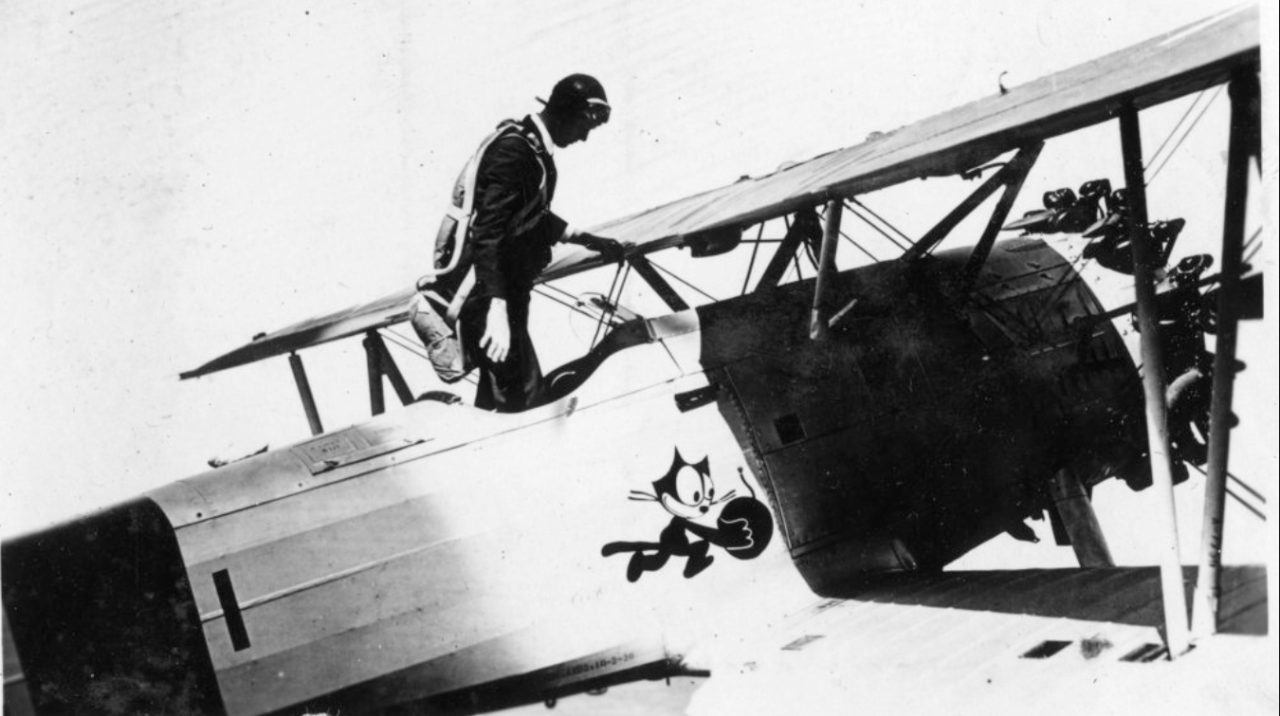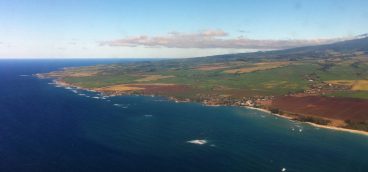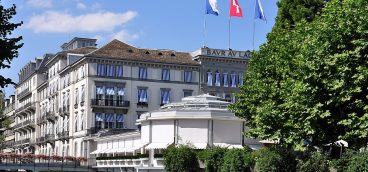Death of the Famous Airman

“If I take the wings of the morning and dwell in the uttermost parts of the sea, even there shall thy hand lead me.” Psalms 139: 9-10, the words Charles Lindbergh chose to be engraved on his tombstone
Early in the morning of May 23, 1927, Charles Lindbergh climbed into the Spirit of St. Louis, a modified Ryan monoplane, and took off from Roosevelt Field on Long Island for Paris. It was the first solo flight across the Atlantic and the longest flight in history up to that time by more than 2,000 miles.
Previously in this series: Hotel on the End of the World
Lindbergh’s plane was so heavily loaded with fuel that he cleared the telephone lines at the end of the runway by only 20 feet. To keep himself awake and alert on the 33 hour flight he often flew no more than 10 feet above the waves.
As Lindbergh approached La Bourget airport in Paris almost three days after takeoff, the city experienced the largest traffic jam in its history as 150,000 Frenchmen spontaneously raced to greet the tall, handsome American. Lindbergh climbed out of his airplane to find that he had become the most famous man in the world.
Barely five years later Lindbergh’s first-born son would be kidnapped and murdered in The Crime of Century, and this would be followed by The Trial of the Century, at which Richard Hauptmann was convicted and sentenced to death. The ferocious publicity surrounding these events drove the shy Lindbergh to a self-imposed exile in Europe from which he didn’t return until 1939.
Wishing to be in America but desperate to avoid an unrelenting press, Lindbergh sought out a remote spot where he and his family could be at peace. He bought 10 acres in Hana, Maui from the Family I would soon work for and built a small home on a promontory looking out to sea.
In 1972, at the age of 70, Lindbergh become ill with lymphoma and he quickly realized the disease was terminal. Wishing to die at Hana, he moved permanently to his small house overlooking the Pacific.
During Lindbergh’s many prior trips to Hana he and “Jack,” our ranch foreman, had become close friends, and now Jack became a kind of caretaker to Lindbergh and his family. Several times a day Jack would drive up the lane to the Lindbergh house in his battered pickup truck, checking on Lindbergh’s condition and bringing supplies, medications, mail, etc. These items would be transported in the bed of Jack’s pickup, covered by a tarp to protect them from the hot Maui sun.
Unfortunately for Lindbergh, it didn’t take the press hounds long to figure out where he’d gone, and soon dozens of reporters were pounding on his front door demanding to know his condition and camping out in his yard. This infuriated the Lindberghs and it also infuriated Jack, who called the county police (there are no state cops in Hawaii), who rousted the reporters.
But as soon as the cops left the reporters returned. This happened several times because the cops declined to arrest the reporters, even though they were trespassing on private property – the Lindbergh property when they were in his driveway or yard and the Family’s land when they were in their camp across the road.
Finally, Jack worked out a deal with the reporters – he would stop calling the cops if they would agree to stay in their camp and not trespass on the Lindbergh land. Jack quicky realized, however, that the reporters had no intention of abiding by the agreement they’d just made – as soon as Jack turned his back the reporters were pounding on Lindbergh’s door again. They were, after all, under intense pressure from their editors to let the public know what was going on with the health of The Lone Eagle.
At that point Jack called the Family back in Pittsburgh and requested permission to hire security guards. The Family agreed and soon 12 burly Hawaiians were blocking the Lindbergh driveway twenty-four hours a day.
While all this nonsense was going on, Lindbergh’s condition was steadily deteriorating. Lindbergh wanted to be buried on the grounds of the Palapala Ho’omau Church in Kipahulu, at the other end of the fearsome Hana Road, but that would create a media circus as the tribe of reporters would harass the family with their microphones and cameras.
But Jack had an idea. He’d come and gone so often from the Lindbergh house that the reporters no longer paid any attention to him. After Lindbergh died, Jack’s plan was to take the coffin containing Lindbergh’s body to the church in Kipahulu in the bed of his pickup truck, hidden under the tarp. The Lindbergh family members would then leave the house in dribs and drabs, as they often did to visit neighbors or shop in Kahului. A private funeral would be held in Kipahulu and the coffin interred, and only then would the press be informed.
Lindbergh loved this idea and when it was obvious he wouldn’t live more than another day or two Jack drove into Kahului and purchased a coffin, then returned to the Lindberg house with the coffin hidden under the tarp. The reporters paid him no mind.
Alas, Jack had overlooked one small matter – pun intended. Hawaiian coffins were sized for Hawaiians, not for the six foot three inch Lindbergh; Jack couldn’t fit the body into the coffin!
The family was in anguish but the ever-resourceful Jack had another idea. He sent the family members outside to the end of the promontory, where the crashing surf would drown out any sounds from the house. He then broke Lindbergh’s legs at the knee and sawed through the cartilage. He lifted the body into the coffin, stuffed the lower part of the legs here and there and nailed the lid on.
Jack then drove the coffin to Kipahulu and the family assembled at the church a few hours later. A small but lovely funeral service was held and the coffin was then lowered into the grave and covered over.
After the family members were safely back inside the house and the burly Hawaiian security guards were in place, Jack called the reporters over and informed them that Lindbergh had died, that the funeral had been held and that he had been buried. The reporters were furious – what about interviews with the bereaved widow? What about photo ops by the grave? But it was too late.
During most of his adult life Charles Lindbergh had been hounded by a fierce press corps, but now in death Lucky Lindy had had the last laugh.
Next up: No Country for Old Men













